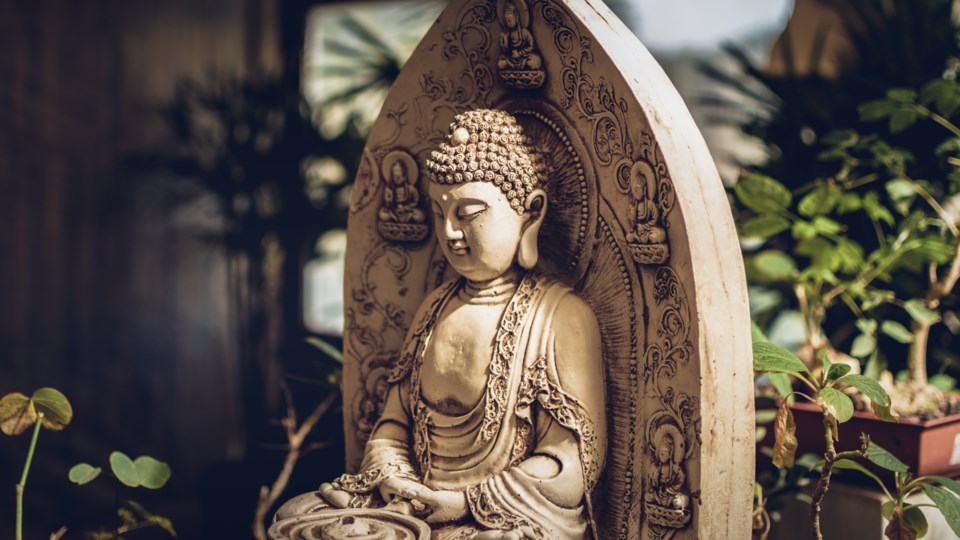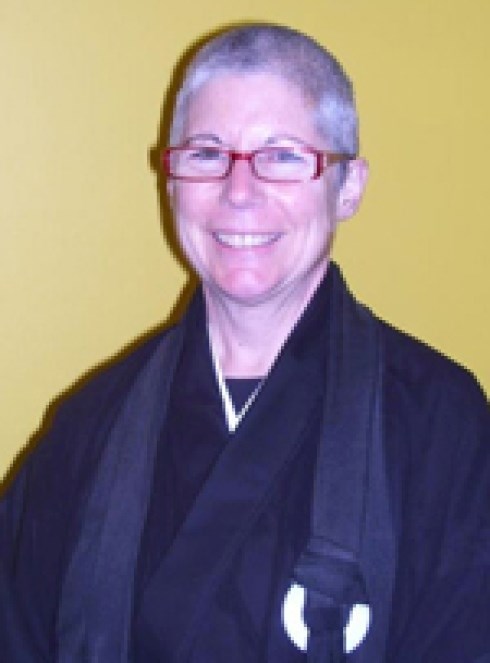 Zen Buddhists the world over are preparing for Rohatsu Sesshin. This meditation intensive commemorates Buddha’s awakening beneath the bodhi tree on Rohatsu, the eighth day of the last month of the year (December 8th).
Zen Buddhists the world over are preparing for Rohatsu Sesshin. This meditation intensive commemorates Buddha’s awakening beneath the bodhi tree on Rohatsu, the eighth day of the last month of the year (December 8th).
The significance of the Buddha’s teaching is that he brought humanity an experience of our deep interconnection, our innate ability to bring harmony to our lives, and our depthless wisdom. According to the Buddha, we are all already awake; we just don’t realize it yet.
Not only did the Buddha experience awakening, which is our birthright, and which some people may experience spontaneously, but he also developed a way to teach it, to help others awaken. This method is called the Four Noble Truths, including the Noble Eightfold Path.
This path of investigation involves a lifestyle of daily meditation, and some care and intentionality in order to create a harmonious life for ourselves and others.
One of the Noble Eightfold Path practices is sometimes translated as Right Speech, but the sense of it is not right versus wrong. It is completed or perfected speech; something that might take some perseverance to achieve as we mature.
There are several parts to this investigation: tell the truth, don’t say things to cause strife, don’t say things to hurt and upset, stay silent when you don’t have anything to say. Additionally, investigate the motivation behind saying what you do say. So it’s simple to make “perfected” speech the intention for the day, and then see if it has been achieved at the day’s end.
How can I use Right Speech in everyday life? I can face the truth and tell it responsibly, while trying to do no harm.
In spite of coming from a pretty conventional background of quietly racist white privilege (read: doing nothing while staying ignorant of much suffering), I’ve been supported and lovingly helped along in my thinking by my environment, library co-workers, collegial chaplains of many different religions, friends, other Zen Buddhists, and the teachings of Buddha.
We are all in this together.
Where my Zen teacher challenged us, with an essay entitled “I am Trump”, to see beyond our small selves, as a Canadian who has just witnessed an upheaval in TV hockey coverage, I would echo this sentiment as “I am every racist grandfather.”
In a world crying out for environmental justice, how do we work for positive change and at the same time continue to love and carry our racist grandfathers? Our sexist uncles and brothers? Our climate-science denying sisters?
The person who is unchallenged by virtue of being white, male, able bodied, straight, cisgender, and conservative may never see their entitlement, may never be fully aware of their effect on others.
Through my own journey from “I’m not racist” to “I’m colour blind” to “I’m learning to be anti-racist”, I know that love and understanding are keys to change, to opening my heart; this sometimes-barricaded home of my fears for the future, fears for the planet, many regrets, but also home of love of family and friends, joy in everyday simple things.
If I can begin to see the effect of racist institutions on the lives of others, and see the part my silence plays, I must speak up for social justice. There is no time to waste on denial or guilt.
The way Zen practice supports me this Rohatsu is through steeping, soaking in the calm, loving, ever-opening infinite. I sit, breathe, and listen deeply on all channels. Re-connected, I step into daily activities encouraged, doing whatever is next, giving voice with as much loving kindness as I can muster.
 Soshin McMurchy was born in Treaty 6 territory. Her grandparents were settlers of English and Scottish descent. She has lived in the traditional and present territory of the ‘Namgis First Nation; and currently lives in the unceded Coast Salish territory of the Lekwungen and W̱SÁNEĆ nations, and was ordained there as a Zen Buddhist priest in 2011.
Soshin McMurchy was born in Treaty 6 territory. Her grandparents were settlers of English and Scottish descent. She has lived in the traditional and present territory of the ‘Namgis First Nation; and currently lives in the unceded Coast Salish territory of the Lekwungen and W̱SÁNEĆ nations, and was ordained there as a Zen Buddhist priest in 2011.
You can read more articles on our interfaith blog, Spiritually Speaking,
* This article was published in the print edition of the sa���ʴ�ý on Saturday November 30th 2019
Photo of Buddha by ���Dz���


